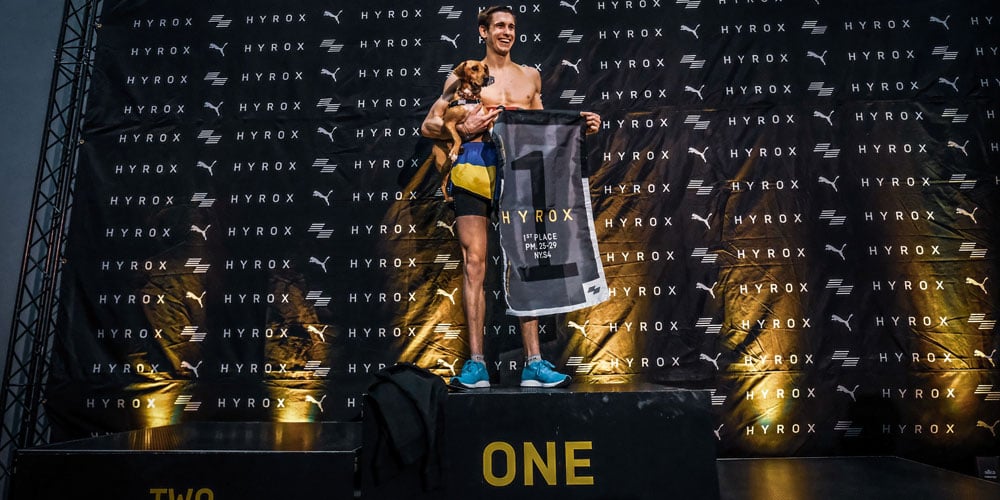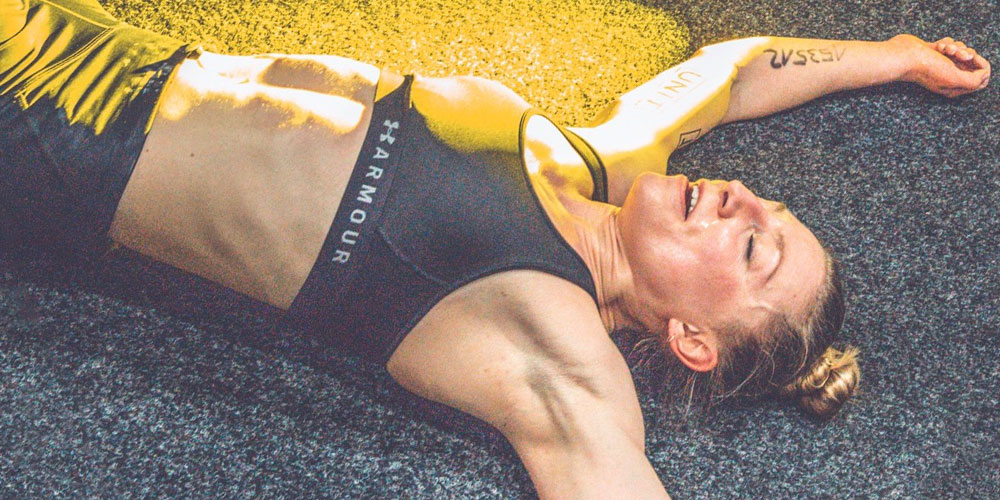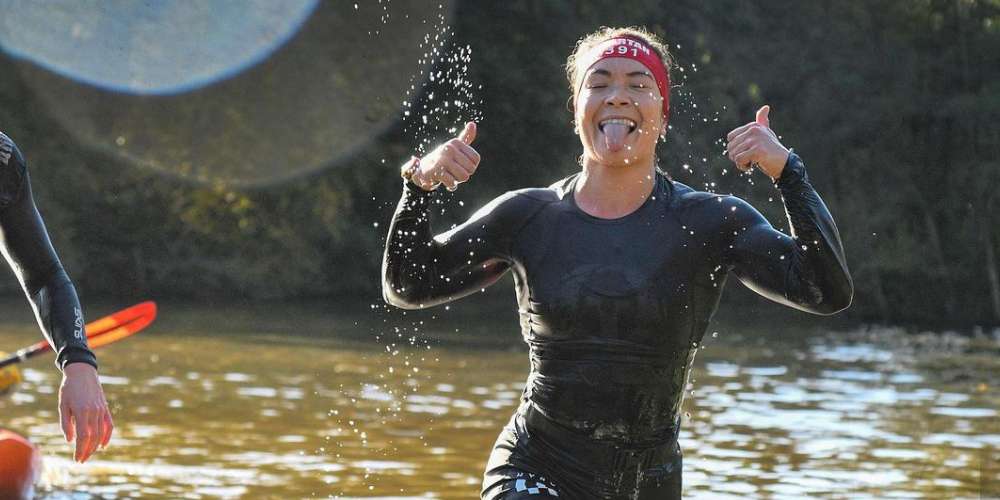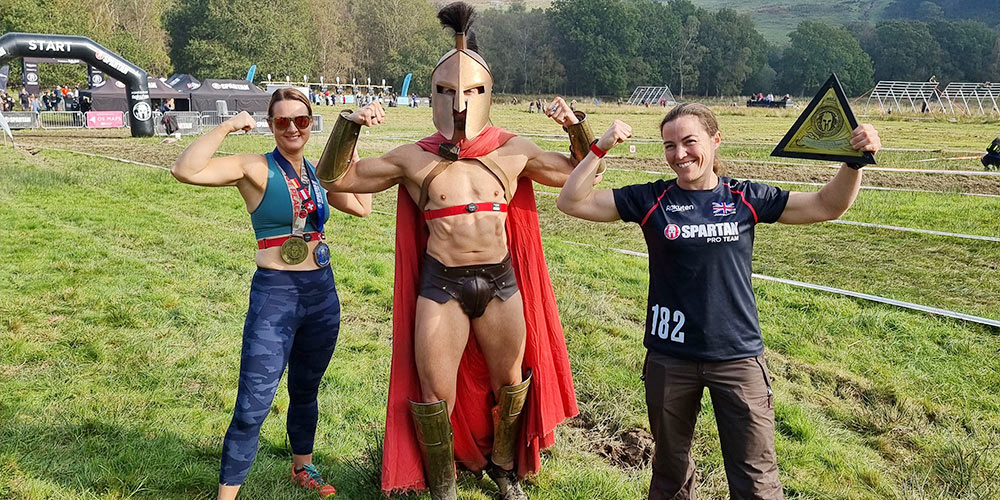Dylan Scott talks training and how to overcome any fitness challenge
Training for any event or competition can be an intimidating experience to start with. Here’s some advice that makes all the difference, from a Team Myzone athlete that knows what it takes to reach the top.
Whether you're looking for motivation to keep moving or pushing for the podium, better never stops. Below, read important training advice from Hyrox Doubles American record breaker and Men’s Pro winner, Dylan Scott.
If you haven’t already, get your hands on an MZ-Switch heart rate monitor to monitor your performance and reward every effort with three ways to wear – on your chest, arm or wrist.

What got you started on your fitness journey?
Fitness for me started around the age of 13 when I moved from being a soccer player to cross country and track runner. It was first to be around my friends but quickly became about the sport and getting the most out of myself.
Running and the challenges it brought with it set my frame of reference for what was difficult and as I expanded on the lengths I was willing to push myself physically the more I found out about who I was and could be as a person when applying the same intensity in other domains.
What achievements are you most proud of?
I look at achievements in each sport and timeframe in my life and break them up as to why I am proud of them. Winning the state championship as the lead leg of the 4x800 team as a sophomore sits with me as my first big success I am proud of.
Transitioning from there I find pride in taking sixth place at Hyrox world championships then running the Boston marathon, a race I dreamed of running from the very early years of my running career, a few weeks later. Lastly, is the recent title of Hyrox doubles American record holder and following that race up four hours later by winning the men’s pro race.
What’s the most important advice you have received?
Approach your relationships with an up-front contract. Learning how to be very clear about what you are willing to do and capable of doing when it comes to working with and associating with other people, including yourself can avoid a lot of trouble in the long run.
Do not waffle around what you are trying to say or what your intentions are. This includes overstating what you are capable of, or understating your aspirations. Laying everything out on the table in the beginning makes the path forward clear to both parties and easier in the long run even if more difficult in the short term.
What advice would you give someone just starting their fitness journey?
I would tell them they have to find joy in the process. It will not be there all the time. There have been and will be workouts where I am miserable and would struggle to say I am enjoying the workout but you need to make sure that training in viewed in a positive light and that you have a good relationship with for it to be sustainable. Every day is not a day to crush yourself. Some days you need to make a workout that is just fun and kind of easy and enjoy that.
How can gyms and fitness professionals get more people moving in their community?
I have always found that when groups of people pick races and train for them together it keeps people accountable and brings people into new sports. With the new style of hybrid racing taking off at a time where we are coming out of a period of social starvation, in a sense, there is both the novelty of a new form of racing as well as the return to the community. With that in mind, I would push for gyms to promote classes geared towards hybrid racing and have a board of races for people to sign-up for and focus on.
What is your favourite way to train?
I love long circuits and they can be structured as an EMOM, AMRAP or 45/15 work to rest. I normally do these for 45-80 minutes and they will incorporate a lot of race specific movements example would be 12x(500m row, 20 wall balls 20#s, 500m ski 20 sandbag lunges 60#s).
What do you find most challenging?
My two biggest challenges are slowing down and doing heavy lifts with big rest and taking easy days. Both of these stem from the fact that I just like to work.
I would much rather gut through 1000cals for time on a rower than do 5x5 with 2-3 minutes rest for big lifts. The same goes for easy days. I can be physically trashed and know I need to rest but my mind wants me to push. So it is hard to calm it down and not always be training.
Is there anything you would do differently from your experience in fitness and physical activity?
The one thing I find myself saying often is that I wish I would have started rowing much sooner. I got introduced into this world through running and I think I am seen as a runner due to my frame and background.
However, getting onto the rower consistently over the past 1.5 years, I feel like that may have been a sport I had a higher ceiling in as a high school or college athlete than I did with track and cross country.
How can people follow your progress?
The best way to keep up with me is through Instagram @dylanscott5991 as I am usually pretty active and responsive on there.
Do you have anything else to add?
If there is one more thing I can say to someone who has big dreams athletically it is that to be really good at something you need to be logically delusional.
What I mean by that is you need to understand yourself very well and be grounded enough to know what you are good at and what your chances of being great are.
Then, from there, you have to be crazy enough to go out there and push to and past the limits that most people would stop at because you believe that there is something in yourself that only you can see.
Share this
You May Also Like
These Related Stories

Viola Oberländer talks elite racing, dreaming big and never giving up

Spartan training secrets: Heart rate zones and Haribo race fuel



